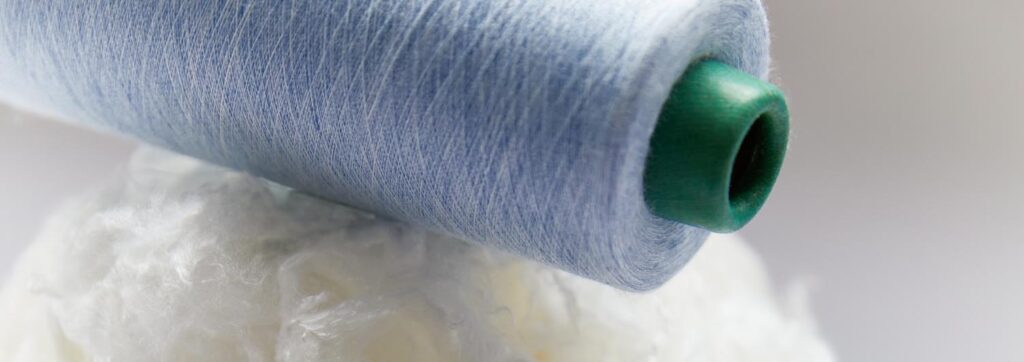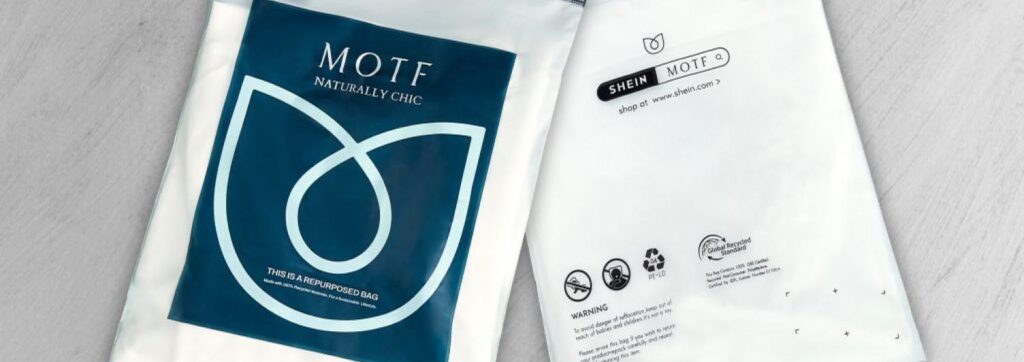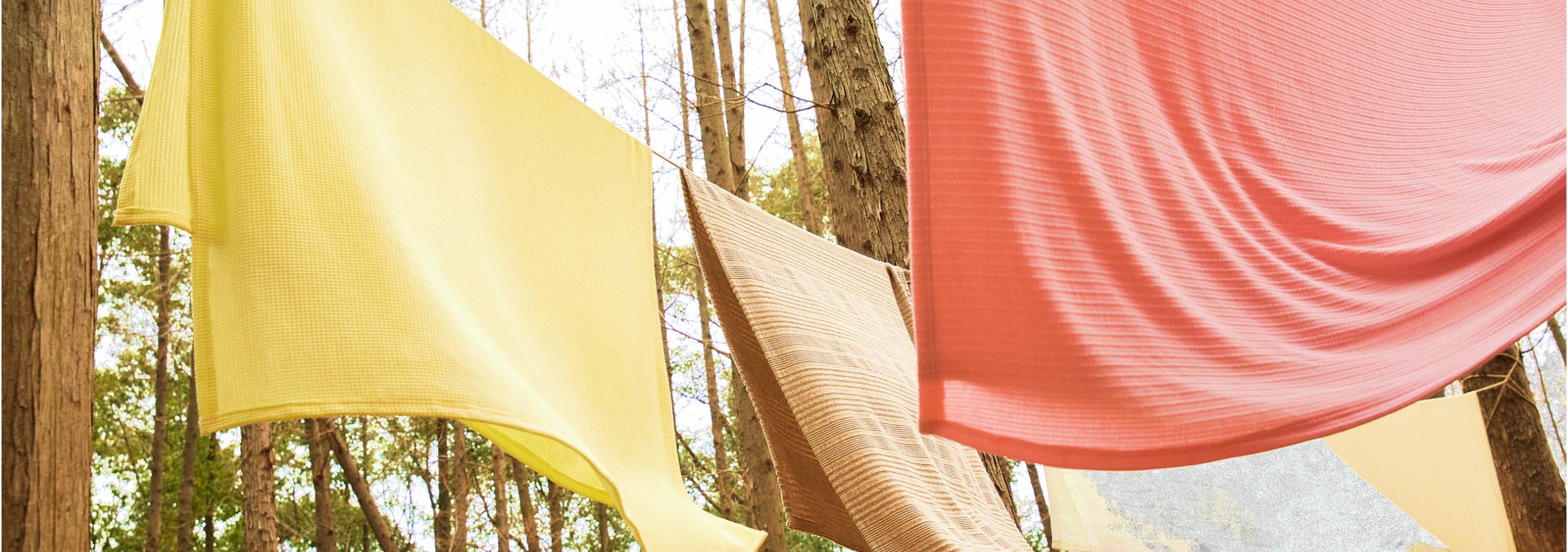We are committed to using materials with a lower environmental impact and preferred performance properties that meet high quality and safety standards to protect both people and the planet.
evoluSHEIN BY DESIGN
In 2022, SHEIN launched evoluSHEIN by Design, our product initiative aimed at accelerating the use of preferred materials and scaling responsible manufacturing processes. Through this initiative, SHEIN is testing new, more sustainable materials, technologies and production processes, and providing a launchpad for scaling sustainable product innovation and education for our designers. Garments sold through this initiative must consist of at least 30% preferred materials and be produced by suppliers that have received high social compliance verification through third-party audits.
With evoluSHEIN by Design, we aim to promote responsible materials and manufacturing methods:
- We use preferred materials with a lower carbon footprint, such as recycled polyester in place of virgin polyester fibers.
- We collaborate with our suppliers and organizations such as Canopy to source wood-derived materials like viscose from suppliers that do not endanger vital ancient forests.
- We find creative ways to repurpose textile surplus – from cutting scraps to rescued fabrics destined for landfill or incineration – left over by other fashion brands.
- We ship products in packaging containing more sustainable content, such as recycled polyester.
We have set targets that drive our operational teams and supply chain partners to reduce the environmental footprint of our products and facilities, which include:
- Sourcing 50% of SHEIN branded products through the evoluSHEIN initiative by 2030.
- Sourcing 100% forest-safe viscose and paper-based packaging by 2025
- Ensuring all packaging contains 50% preferred materials by 2030
- Becoming a global leader in rescuing industry’s excess inventory
“The evoluSHEIN by Design initiative supports our advancement to a more circular system, starting with the design of our products. Our ambition is to continue measuring and mitigating the environmental impact of our products while collaborating with other industry leaders to propel the circular textile economy forward. This is also an opportunity to promote alternative and informed fashion choices in a way that is engaging for our customers and brings them along on our evoluSHEIN journey as we continue to evolve SHEIN for the future.”
Caitrin Watson, Director of Sustainability at SHEIN
Preferred Material Sourcing

Part of our decarbonization strategy is to use lower-impact materials. This means transitioning from virgin polyester to recycled polyester and utilizing other preferred materials such as forest-safe, man-made cellulosic fibers. It also means using as little new raw materials as possible through small-batch, on-demand production processes and utilizing rescued deadstock fabrics from other brands that otherwise would have gone to waste. We aim to do this through investments and partnerships with leading organizations:
Polyester: Polyester accounts for the majority of SHEIN’s fiber portfolio, making the transition to recycled polyester a significant aspect of our decarbonization initiative. To meet our targets, we have a plan to transition at least 31% of our polyester-based products to recycled polyester by 2030, with the expectation of saving 3 million tonnes CO2e over the next 5 years. We are doing this by incorporating recycled polyester (rPET) into our fiber portfolio with the launch of our first evoluSHEIN collection.
Viscose: We believe that man-made cellulosic materials have great potential as a preferred fiber. In 2022, we became CanopyStyle signatories, and after accomplishing our 45% target in 2022, have now committed to transition 60% of our directly sourced man-made cellulosic fibers (viscose, rayon, acetate, etc.) to Canopy-approved suppliers by the end of 2023. We also accelerate Next Generation fiber solutions and promote forest conservation. With Canopy’s guidance we are working quickly toward this goal.
Rescued Materials: In 2022, SHEIN partnered with Queen of Raw to begin sourcing high-quality excess deadstock fabric from other brands. These surplus materials, which were destined for landfills or incinerators, now have a chance to be used and worn.

Preferred Materials: SHEIN is also a member of Textile Exchange, a global non-profit organization that develops and oversees industry standards for preferred fibers and materials across the fashion and textile sectors. As we incorporate more responsible fibers into our products, we look to Textile Exchange for guidance on best practices for reducing the impact of raw materials.
Packaging

SHEIN is committed to increasing our use of sustainable packaging alternatives. We are increasing our use of post-consumer waste content and reducing single-use plastics in our product packaging with the goal of having 50% of preferred materials in all our packaging by 2030. In August 2022, we began using recycled polyethylene (PE) plastic express bags for all parcels sent to European countries. These express bags, made of 50% recycled PE plastic, are produced from circular waste processes that minimize the need for raw material extraction and require less energy and water than those of virgin materials.
All items from MOTF, SHEIN’s premium brand, also switched to 100% recycled PE plastic bags in August 2022 – an initiative expected to save three tons of virgin plastic per month. Packaging bags adopted by SHEIN, ROMWE and other SHEIN brands will also be gradually replaced by bags made with responsibly-sourced materials.
SHEIN’s recycled PE plastic express bags, MOTF packaging bags and evoluSHEIN packaging bags are certified to the Global Recycled Standard (GRS) in partnership with GRS-certified vendors. This globally recognized certification supports the traceability of recycled material through all stages of the supply chain and requires strict social and environmental compliance. The GRS standard is managed by Textile Exchange. SHEIN has also committed to eliminating paper sources coming from vital forests by 2025.
SHEIN has also joined the Canopy Pack4Good commitment to increase the use of recycled and forest-safe content in packaging.
Product QUality & Safety
Quality
We have defined strict product quality and safety standards. These require durability and chemical testing from our textile suppliers. Our compliance testing protocols include a quality-check process where products are examined right at the warehouse – including testing for durability factors like tear-strength, pilling, and color fastness. In 2022 alone, we conducted over 300,000 product quality tests.
Chemicals and Product Safety
SHEIN engages with industry experts such as Textile Exchange and the American Apparel & Footwear Association (AAFA) to reinforce current practices for managing product compliance.
We have developed a Restricted Substances List (RSL) in reference to the International RSL Management (AFIRM) Working Group for Apparel and Footwear, REACH, POPs, and other relevant national and regional regulations. We facilitate supplier compliance with the SHEIN RSL with the support of third-party experts and independent labs.
